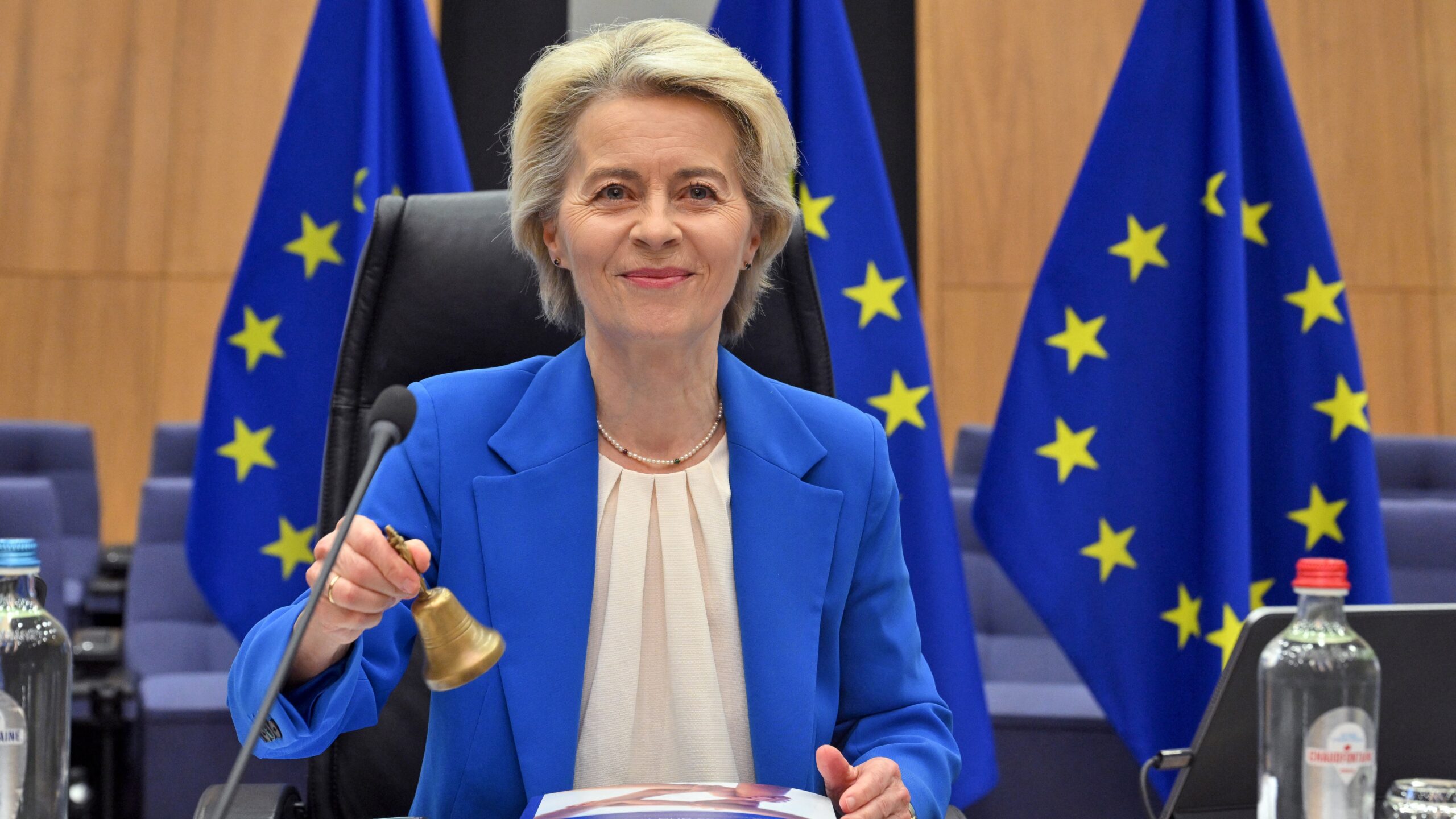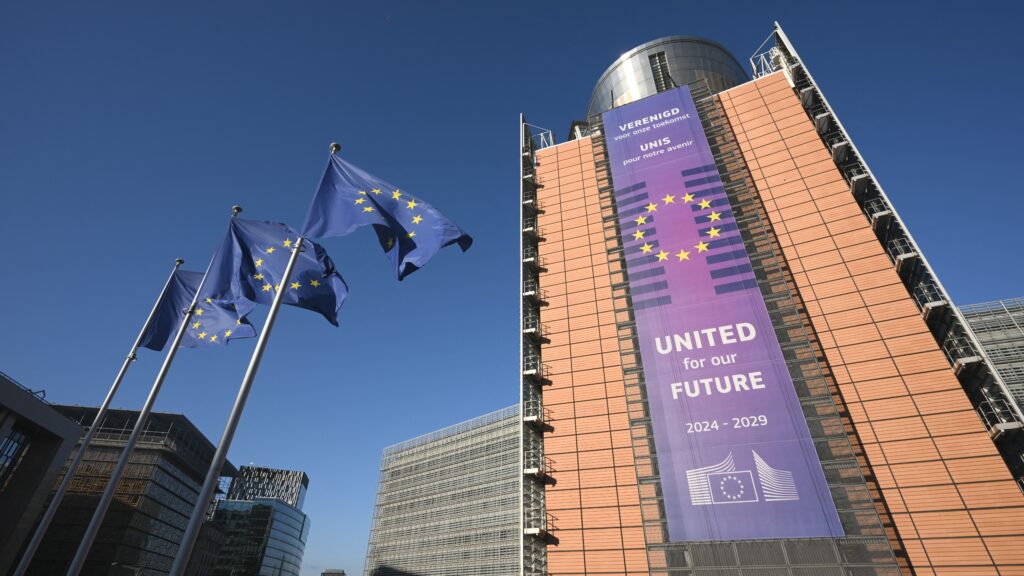For the first time, recent European elections produced an alternative centre-right majority. Unfortunately, the EPP chose once again to ally itself with the socialists and greens, that is, the losers of these elections.
Nevertheless, it is worth noting that the European Commission that began work on 1 December is the most right–wing body in, perhaps, the EU’s history—by Brussels’ standards, in any case. This provides an opportunity to enact the change that Europeans voted for.
The leaders and politicians of our continent need to acknowledge a reality that the average European citizen has already discovered; namely, that Europe is on a dangerous path that will lead to total geopolitical irrelevancy and economic misery. The problem is not merely due to the wrong policies being implemented. It is much more substantial than that. The issue at the centre of every problem is the fact that elites have become unrepresentative and entirely detached from reality and their voters.
As a result, Europe is on track to be crushed by its enormous debt, choked by over-taxation, and buried by Brussel’s bureaucrats, unless it changes course. It is still on time to heal itself. While deep reforms are unlikely to happen, the centre-right forces that are a majority can make small but meaningful economic changes. In the United States, many are starting to realize that only a deep audit and drastic cuts in spending can prevent a debt crisis. Europe would be well served with a Department of Government Efficiency like the DOGE that will be created in the United States after 20 January by Elon Musk and Vivek Ramaswamy.
‘The issue at the centre of every problem is the fact that elites have become unrepresentative and entirely detached from reality and their voters’
The situation in the EU is much worse than in the US. According to estimates by the World Bank, from 1960 to 2023, the US has had a higher GDP for 51 years, while the EU for only 13 years. In 2024 the US GDP is projected to be $29.2 trillion, compared to the EU’s $19.4 trillion. GDP per capital in the US was $80,035 in 2023 vs approximately $40,800 in the EU, while GDP growth rate average from 2010 to 2023 has been 2.3 per cent and 1.5 per cent, respectively. Last year US productivity was 22 per cent higher than the EU’s.
The US leads in R&D investments ($650 million vs EUR 333 billion in favour of the US in 2022), in number of tech companies over $10 billion (over 500 in 2024 vs 7 in favour of the US), and venture capital investments. Moreover, the United States ranks higher than most EU countries in the ease of doing business.
What the EU leads in is the tax burden and regulations it imposes on companies and citizens. As per an analysis of Heritage Foundation Research Fellow Preston Brashers, for a typical American family of four, ‘a European-style tax system could carry a price tag of $20,000 per year or more in additional taxes’. Moreover, ‘because of America’s child tax credit, the gap between U.S. and European tax rates is even larger for parents. A married parent with two kids earning an average wage pays a 13.3 per cent tax on income in the U.S. compared to 23.6 per cent in Western Europe’.
According to the analysis of Mr Brashers, while the typical American pays a 7 per cent sales tax at the state and local level, a consumer in a typical Western European country faces a 21.8 per cent VAT; whereas the US employer side payroll tax is 7.65 per cent, the average Western Europe country hits employers with a 21.6 per cent payroll tax.
Mario Draghi’s competitiveness report points out that only four of the world’s top 50 tech companies are European. From 2008 to 2021, nearly 30 per cent of European ‘unicorns’ relocated their headquarters, mostly to the US. What is more alarming is the fact that by 2040, Europe’s workforce is projected to shrink by nearly 2 million workers each year. To maintain GDP levels by 2050 using the average productivity growth since 2015, substantial investment in innovation and productivity is needed.
This situation is not sustainable anymore. Not if the European Union wants to continue its existence and remain relevant in world affairs. Salvation cannot come from offering more of the same—the policies that caused the decline in the first place. The crises of recent years have allowed governments to extend their reach in unprecedented ways during peacetime. This expansion often comes with promises of massive borrowing, measured in trillions, ostensibly aimed at stimulating the economy. However, these funds are frequently funnelled into zombie companies, unproductive industries, and politically connected entities. When such stimulus programmes fail, it is politicians who step in as self-proclaimed saviours, vowing to double down on the same failed strategies.
‘Salvation cannot come from offering more of the same—the policies that caused the decline in the first place’
According to the EU’s own data, the Juncker Plan allocated €439 billion to investment projects between 2014 and 2019. The return on this staggering expenditure was a mere 0.9 per cent increase in GDP and 1.1 million additional jobs across the bloc. Similarly, the 2009 Employment and Growth Plan yielded disappointing results, same as the COVID-19 recovery plan. It has been proven time and again that borrowing enormous sums to fund unproductive programmes rather than empowering the private sector to drive genuine, sustainable growth does not work.
In this context, it was a welcomed change to read Prime Minister Viktor Orbán’s priorities for Hungary’s EU Presidency. In what constituted a novelty for a European leader, Mr Orbán stated that the EU needs a new deal that removes administrative and other burdens to make Europe competitive again. Competitiveness needs to be a keyword of the new Commission, to stop the demographic decline and put the individual and family at the heart of their decision-making.
This can be done only through a reduction in the tax burden, massive cuts in government spending, restoring the principle of subsidiarity, a drastic change in how the private sector is treated by bureaucrats, leading to reductions in red tape and an encouragement in innovation, investments and fair competition.
Europe has the last chance to become a pro-growth continent once again. The Patriots and the ECR are there to provide the necessary support to the EPP to push these reforms forward, even though the Socialists and Greens will try to obstruct. Madam von der Leyen articulated her commission’s intention to closing the innovation gap with global competitors, advancing a plan for decarbonization and competitiveness, and reinforcing economic security by reducing dependencies.
Judging from past actions, there is room for great scepticism. Yet, European voters have called for change, and this Commission has a mandate to act. EU citizens will reward whoever follows the pro-growth path leaving behind the socialist madness in all its forms. The time for bold, centre-right leadership is now.
Related articles:







